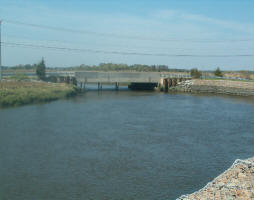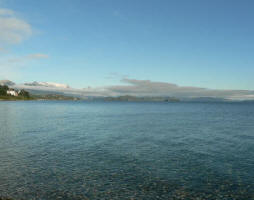 Water policy reforms: pricing water, cost recovery, water demand and impact on agriculture: Lessons from the Mediterranean experience.
Water policy reforms: pricing water, cost recovery, water demand and impact on agriculture: Lessons from the Mediterranean experience.
Mediterranean countries invested heavily in irrigation schemes to secure and increase agriculture water supply in order to develop this economic sector, to improve food security and to target populations in less favoured rural areas. The State made water available at a low cost to farmers through public financing. This policy resulted in a highly subsidised irrigated agriculture (Abu-Zeid, 2001) where low water prices contributed to irrigated area extension, agricultural water demand increase, and misallocation of the resource among users and uses. Low cost recovery and poor maintenance caused infrastructure deterioration and low water distribution efficiency and irrigation performance. Past policies reached their limits to ensure adequate financial balance and to control water demand. Governments have been compelled to revisit their policies and engage in pricing reforms to improve cost recovery and more recently to shift to water demand management policies -1997 Fréjus and 2002 Fiuggi conferences on demand-based management (Chohin-Kuper, Rieu & Montginoul, 2002). The objective of the article is to analyse the impact of pricing reforms on cost recovery and farmers revenues and draw lessons from Mediterranean experiences. In the first part, we review water policies and pricing experiences in Mediterranean countries for irrigation water. We then analyse their impact in terms of cost recovery of water services, water demand and farmers revenues (part 2). Finally, we analyse the key factors for water policy implementation.
Pricing experiences in Mediterranean countries are in general oriented towards cost recovery objectives and have contributed to the reduction of public financing at least with respect to operation and maintenance costs of irrigation schemes. More rarely, a part of capital cost is charged to farmers. That would lead to a better durability of water infrastructures.
These pricing policies have a negative impact on farmers revenues which influence pricing policies or need complementary policies addressing the issue of “acceptability”. However, these price increases did not contribute significantly to water demand management objectives and there is a need for complementary tools and policies in order to tackle the water resource issue.
Finally, the impact of water pricing reforms on conjunctive use of alternative water resources and its potential impact on the environment –groundwater depletion, soils salinisation risks- need to be assessed but this has not yet been analysed due to the fact that significant increases in water pricing are still limited to few countries.
| Creator | Anne Chohin-Kuper, Thierry Rieu, Marielle Montginoul; Water Pricing Seminar (June 30 – July 2, 2003); Agencia Catalana del Agua & World bank Institute; Parallel session C : The impact of cost recovery on Agriculture (email: thierry.rieu@cemagref.fr) |
|---|---|
| Publisher | Anne Chohin-Kuper, Thierry Rieu, Marielle Montginoul; Water Pricing Seminar (June 30 – July 2, 2003); Agencia Catalana del Agua & World bank Institute; Parallel session C : The impact of cost recovery on Agriculture |
| Type of document | Proceedings |
| Rights | Public |
| File link | n/a |
| File link local |
|
| Source of information | World Bank |
| Keyword(s) | pricing water, cost recovery |
| Subject(s) | AGRICULTURE , FINANCE-ECONOMY , POLICY-WATER POLICY AND WATER MANAGEMENT , WATER DEMAND |
| Relation | http://www.semide.net/topics/wd |
| Geographical coverage | n/a |
 you are not logged in
you are not logged in





